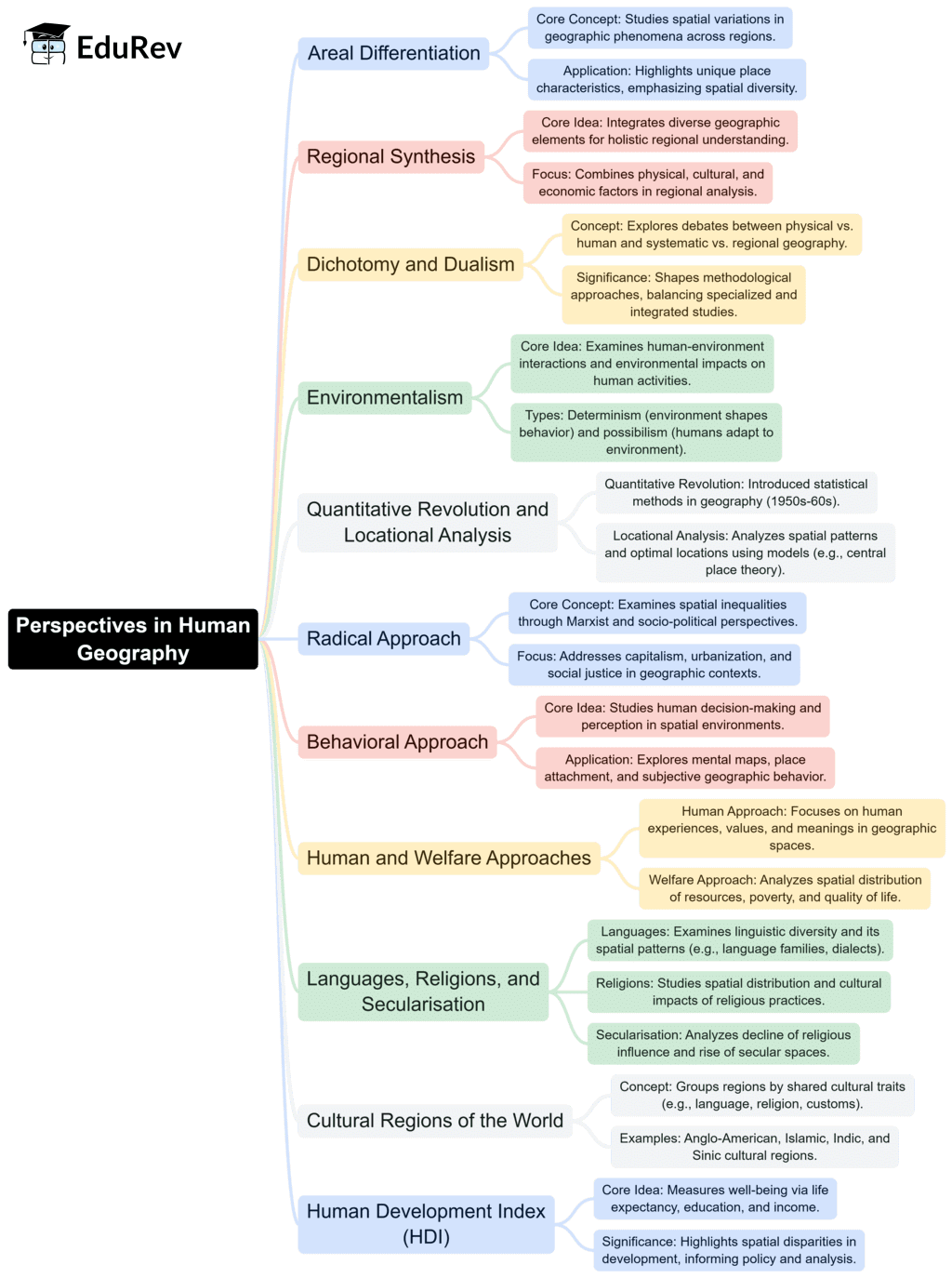UPSC Exam > UPSC Notes > Geography Optional for UPSC > Mind Map: Perspectives in Human Geography
Mind Map: Perspectives in Human Geography | Geography Optional for UPSC PDF Download

The document Mind Map: Perspectives in Human Geography | Geography Optional for UPSC is a part of the UPSC Course Geography Optional for UPSC.
All you need of UPSC at this link: UPSC
|
303 videos|635 docs|252 tests
|
FAQs on Mind Map: Perspectives in Human Geography - Geography Optional for UPSC
| 1. What are the key perspectives studied in Human Geography? |  |
Ans. Human Geography explores various perspectives that focus on the relationship between people and their environments. Key perspectives include cultural geography, which examines how culture shapes spatial practices; political geography, which looks at the impact of political processes on space; economic geography, focusing on how economic activities are distributed; and urban geography, which studies the development and organization of cities. Each perspective provides unique insights into human interactions with the environment.
| 2. How does Human Geography differ from Physical Geography? |  |
Ans. Human Geography differs from Physical Geography primarily in its focus. While Human Geography studies the spatial aspects of human existence and the ways in which human culture interacts with the environment, Physical Geography concentrates on natural processes and features of the Earth, such as landforms, climate, and ecosystems. Together, they provide a comprehensive understanding of the Earth and its inhabitants.
| 3. Why is the study of Human Geography important for UPSC exam preparation? |  |
Ans. The study of Human Geography is crucial for UPSC exam preparation as it forms a significant part of the syllabus for both the preliminary and main examinations. Understanding Human Geography helps candidates analyze social issues, spatial relationships, and the impact of human activity on the environment. Moreover, it enhances critical thinking and analytical skills, which are essential for answering complex questions in the exam.
| 4. What are some contemporary issues addressed in Human Geography? |  |
Ans. Contemporary issues addressed in Human Geography include globalization, urbanization, migration, environmental degradation, and social inequality. These issues are examined through various lenses such as cultural identity, economic disparity, and political power dynamics. Understanding these topics is essential for grasping how human activities and policies shape geographical landscapes and affect societies.
| 5. How can one effectively study Human Geography for the UPSC exam? |  |
Ans. To effectively study Human Geography for the UPSC exam, candidates should begin by familiarizing themselves with the key concepts and terminologies. Reading NCERT textbooks and standard reference books, along with current affairs related to geography, is recommended. Creating mind maps, summarizing topics, and practicing previous years' question papers can also enhance retention and understanding. Participating in group discussions and online forums can provide diverse perspectives and deepen comprehension.
Related Searches
















